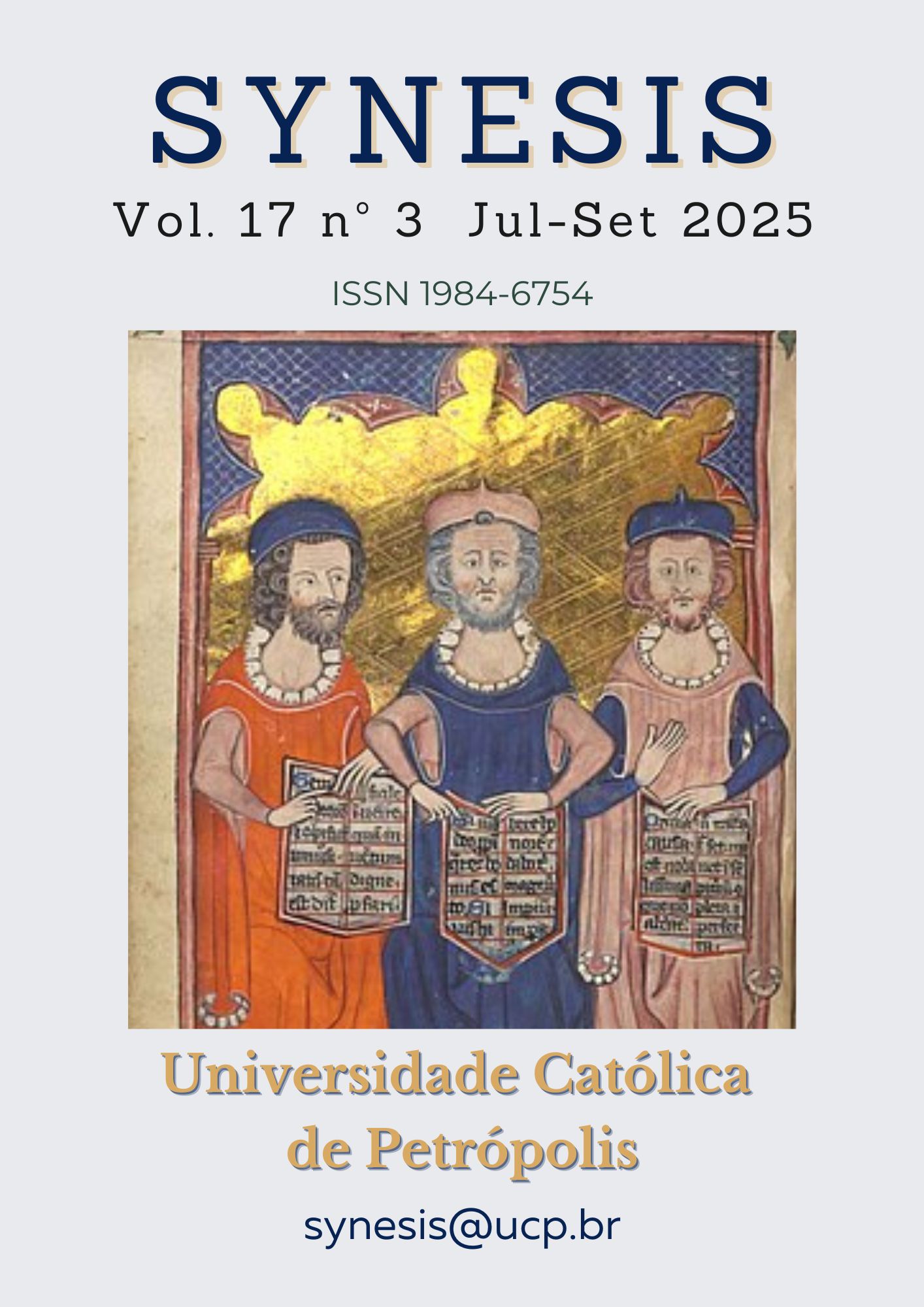Abstract
This article seeks to bring together the studies of anthropologist Claude Lévi-Strauss, in his work "Structural Anthropology II," especially the discussion presented in the chapter "The Sex of the Stars," with the notion of family resemblances proposed by philosopher Ludwig Wittgenstein, in his work "Philosophical Investigations." Lévi-Strauss analyzes how different cultures represent and refer to the Sun and the Moon, exploring the relationships between language, myths, and social structures, highlighting both common patterns and cultural particularities in the way these celestial bodies are conceived and experienced. Meanwhile, Wittgenstein proposes the notion of family resemblances as a network of similarities that connect individuals within any given set. Concepts generally have vague delimitations, obscure boundaries, and are "blurred." However, such imprecision does not prevent these concepts from being useful or functional in everyday language use. This Wittgensteinian conception can be taken as a useful approach to analyze the diversity of representations of celestial bodies in different cultures, as well as to clarify the complexities of languages and their varied uses. Both authors emphasize the importance of considering the specific contexts in which representations occur and how the connections and resemblances between them can be observed in a flexible and dynamic manner.Parte superior do formulário
References
AQUINO, Fernando Lopes de. Conceitos e semelhanças de família em Wittgeinstein: uma leitura das Investigações Filosóficas. Kínesis, v. 4, n. 7, 2012. Disponível em: https://revistas.marilia.unesp.br/index.php/kinesis/article/view/4907.
BARBOSA, Euclides. Semelhanças de família e generalização acerca das artes (Maurice Mandelbaum). Rapsódia, [S. l.], v. 1, n. 15, 2021. Disponível em:
BASQUES, Messias. Claude Lévi-Strauss e o mito da mitologia. Revista Brasileira de Ciências Sociais, v. 27, n. 79, 2012. Disponível em:
CARVALHO, Edgar de Assis. A paixão pelo entendimento: Claude Lévi-Strauss e a universalidade da cultura. Revista Cronos, [S. l.], v. 9, n. 2, 2012. Disponível em:
CUTER, Virgílio. Wittgenstein e eu. Revista Discurso, no. 38, 2008.
DALL’AGNOL, Darlei. Natural ou transcendental: sobre o conceito Lebensform em Wittgenstein e suas implicações para a ética. Revista de Filosofia Aurora, vol. 21, no. 29, 2009.
https://periodicos.ufrn.br/cronos/article/view/1777/pdf_27. Acesso em: 17/02/2023
https://www.revistas.usp.br/rapsodia/article/view/193048/177850.
https://www.scielo.br/j/rbcsoc/a/78SkxF9jDXLdT8ZhrxCwXRS/?lang=pt#:~:text=Os%20mitos%2C%20dir%C3%A1%20L%C3%A9vi%2DStrauss,%2C%20assim%2C%20transformarem%2Dse. Acesso em: 17/02/2023
LÉVI-STRAUSS, Claude. Antropologia Estrutural Dois. Rio de Janeiro: Tempo Brasileiro, 1993.
MOREIRA, Rodrigo Cezar Medeiros. Conceitos por Semelhança de Família e o Problema da Textura Amplamente Aberta. Revista Ítaca, no. 27, v. 2, 2014.
PERUZZO, Leo. O conceito de lebensform (formas de vida) na filosofia de Wittgenstein. Revista Ítaca, no. 17, 2011.
REMOTTI, Francesco. From Lévi-Strauss to Wittgeinstein: the ideia of ‘imperfectionism’ in anthropology. Diogenes, Torino, v. 60, n. 2, 2015. Disponível em: https://journals.sagepub.com/doi/10.1177/0392192114568261. Acesso em: 17/02/2023
WITTGENSTEIN, Ludwig. Investigações Filosóficas. São Paulo: Nova Cultural, 1999.

This work is licensed under a Creative Commons Attribution-NonCommercial-NoDerivatives 4.0 International License.
Copyright (c) 2025 Synesis (ISSN 1984-6754)

